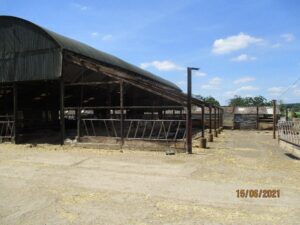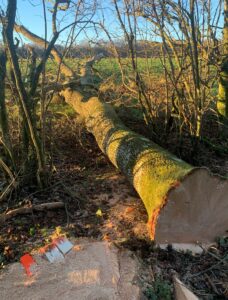Residents put at risk of deadly disease as company fined £900k
A company has been fined following an outbreak of legionella at its sheltered housing accommodation in Birkenhead, putting vulnerable residents at risk of contracting Legionnaires’ disease.
The deadly bacteria was detected at Vincent Naughton Court following the sampling of its water systems in the communal areas and flats in July and August 2018.
With all 44 samples testing positive for legionella, the residents were then evacuated from the Sanctuary Housing premises in August 2018, before returning in October and November 2018 after the water system was remedied through the installation of a chlorination unit.
A Health and Safety Executive (HSE) investigation found Sanctuary Housing poorly managed the risk of legionella in the water system of Vincent Naughton Court, with staff inadequately trained and supervised. The residents were a particularly vulnerable group due to their age and underlying health issues, putting them at a higher risk of contracting Legionnaires’ disease.
The HSE investigation found that legionella was detected during testing on 16 and 31 July, which prompted a letter being written by Sanctuary Housing to residents, advising that work would be carried out on the water system on 6 August.
The letter, dated 3 August, misleadingly stated that the contaminated tap water could be stored in sinks and boiled in kettles. More importantly, the letter failed to inform residents that they should avoid using their showers, which would lead to residents being exposed to the risk of Legionnaires’ disease.
Further testing on 8 and 15 August confirmed legionella was still present as work to fix the water system was carried out. The residents were later evacuated on 24 August.
HSE guidance can be found at: Legionella and legionnaires’ disease – HSE
Sanctuary Housing Association, of Castle Street, Worcester pleaded guilty to breaching Section 3(1) of the Health and Safety at Work etc. Act 1974. The company was fined £900,000 and ordered to pay £11,480.60 in costs at Liverpool Crown Court on 22 October 2024.
HSE inspector Rose Leese-Weller said: “Sanctuary Housing failed to protect vulnerable residents living at Vincent Naughton Court through its mismanagement of the site’s water system. It is very fortunate that none of the residents became ill as they were allowed, without any proper warnings, to continue to use the grossly contaminated water for a large period of time. Not only was there a failure by Sanctuary Housing to manage the risk of contamination in its water systems, but the company had not provided its staff with adequate instruction and training.”
This HSE prosecution was brought by HSE enforcement lawyer Kate Harney and supported by HSE paralegal officer Lucy Gallagher.
Notes to editors:
- The Health and Safety Executive (HSE) is Britain’s national regulator for workplace health and safety. We are dedicated to protecting people and places, and helping everyone lead safer and healthier lives.
- More information about the legislation referred to in this case is available.
- Further details on the latest HSE news releases is available.
- HSE does not pass sentences, set guidelines or collect any fines imposed. Relevant sentencing guidelines must be followed unless the court is satisfied that it would be contrary to the interests of justice to do so. The sentencing guidelines for health and safety offences can be found here.









